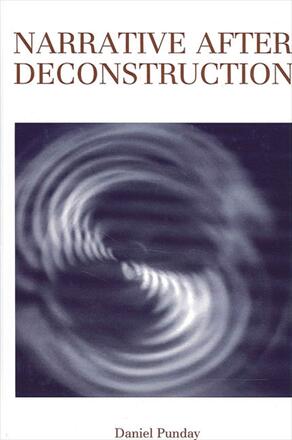
Narrative after Deconstruction
Alternative formats available from:
Develops a rigorous theory of narrative as apost-deconstructive model for interpretation.
Description
Interrogating stories told about life after deconstruction, and discovering instead a kind of afterlife of deconstruction, Daniel Punday draws on a wide range of theorists to develop a rigorous theory of narrative as an alternative model for literary interpretation. Drawing on an observation made by Jean-François Lyotard, Punday argues that at the heart of narrative are concrete objects that can serve as "lynchpins" through which many different explanations and interpretations can come together. Narrative after Deconstruction traces the often grudging emergence of a post-deconstructive interest in narrative throughout contemporary literary theory by examining critics as diverse as Jacques Derrida, Gilles Deleuze, Elizabeth Grosz, and Edward Said. Experimental novelists like Ronald Sukenick, Raymond Federman, Clarence Major, and Kathy Acker likewise work through many of the same problems of constructing texts in the wake of deconstruction, and so provide a glimpse of this post-deconstructive narrative approach to writing and interpretation at its most accomplished and powerful.
Daniel Punday is Assistant Professor of English at Purdue University Calumet.
Reviews
"…Punday provides a rich reading of deconstruction and narrative theory by looking at contemporary critics and experimental novelists. " — CHOICE
"…a well-researched study that seeks to coordinate frameworks for inquiry (e. g., cultural geography, feminist theories of materiality, and deconstructive literary theory) whose interconnections indeed deserve to be explored more fully. " — Poetics Today
"Narrative after Deconstruction offers a lucid, erudite, and persuasive argument for rethinking contemporary narration in light of, and in response to, the deconstructive questionings of the previous decades. This book is engaging, insightful, and accessible, in spite of the difficult theories that it unpacks. " — Marcel Cornis-Pope, author of Narrative Innovation and Cultural Rewriting in the Cold War Era and After
"Punday provides new insights into the field of critical theory by formulating unique spatial/temporal distinctions for understanding narrative in the aftermath of deconstruction. " — M. W. Smith, author of Reading Simulacra: Fatal Theories for Postmodernity